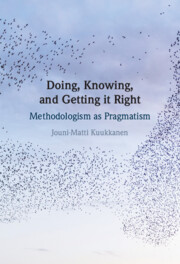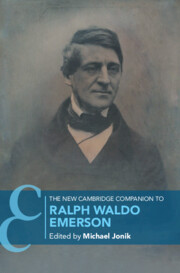Refine search
Actions for selected content:
3411392 results

The Cambridge Handbook of Second Language Acquisition
- Coming soon
-
- Expected online publication date:
- April 2026
- Print publication:
- 30 April 2026
-
- Book
- Export citation

Classical Algebraic Geometry
- A Modern View
- Coming soon
-
- Expected online publication date:
- April 2026
- Print publication:
- 30 April 2026
-
- Book
- Export citation

Bronze Sculpture in the Classical World
- From Text to Context to Technology
- Coming soon
-
- Expected online publication date:
- April 2026
- Print publication:
- 30 April 2026
-
- Book
- Export citation

Leadership for Sustainability
- Myth, Metaphor and Narrative in Governance
- Coming soon
-
- Expected online publication date:
- April 2026
- Print publication:
- 30 April 2026
-
- Book
- Export citation

Alejo Carpentier in Context
- Coming soon
-
- Expected online publication date:
- April 2026
- Print publication:
- 31 May 2026
-
- Book
- Export citation

Philip II of Spain and the Power of Money
- Between Parliament and Bankers
- Coming soon
-
- Expected online publication date:
- April 2026
- Print publication:
- 30 April 2026
-
- Book
- Export citation
Markov Decision Processes and Reinforcement Learning
- Coming soon
-
- Expected online publication date:
- April 2026
- Print publication:
- 30 April 2026
-
- Book
- Export citation

Monarchies of Extraction
- The Gulf States in the Global Food System
- Coming soon
-
- Expected online publication date:
- April 2026
- Print publication:
- 31 May 2026
-
- Book
- Export citation

The Cambridge Companion to World Trade Law
- Coming soon
-
- Expected online publication date:
- April 2026
- Print publication:
- 28 February 2026
-
- Book
- Export citation
The Cambridge Handbook of AI in Civil Dispute Resolution
- Coming soon
-
- Expected online publication date:
- April 2026
- Print publication:
- 30 April 2026
-
- Book
- Export citation

Sets and Transfinite Algebra
- Coming soon
-
- Expected online publication date:
- April 2026
- Print publication:
- 30 April 2026
-
- Book
- Export citation

Quantum Physics
- Fundamentals and Applications
- Coming soon
-
- Expected online publication date:
- April 2026
- Print publication:
- 28 February 2026
-
- Textbook
- Export citation

Lady Church in the Christian Imagination
- From Early Christianity to Early Modernity
- Coming soon
-
- Expected online publication date:
- April 2026
- Print publication:
- 30 April 2026
-
- Book
- Export citation

Aristotle on Justice
- The Virtues of Citizenship and Constitutions
- Coming soon
-
- Expected online publication date:
- April 2026
- Print publication:
- 30 April 2026
-
- Book
- Export citation

Doing, Knowing, and Getting it Right
- Methodologism as Pragmatism
- Coming soon
-
- Expected online publication date:
- April 2026
- Print publication:
- 30 April 2026
-
- Book
- Export citation

The New Cambridge Companion to Ralph Waldo Emerson
- Coming soon
-
- Expected online publication date:
- April 2026
- Print publication:
- 30 April 2026
-
- Book
- Export citation

The Cambridge Handbook of Behavioural Data Science
- Coming soon
-
- Expected online publication date:
- April 2026
- Print publication:
- 30 April 2026
-
- Book
- Export citation

Iran's Minorities
- Social Diversity and State Power
- Coming soon
-
- Expected online publication date:
- April 2026
- Print publication:
- 30 April 2026
-
- Book
- Export citation

Marine Technology, Ocean Development and the Law of the Sea
- Coming soon
-
- Expected online publication date:
- April 2026
- Print publication:
- 30 April 2026
-
- Book
- Export citation

The Economics of Language
- How Large Language Models Can Reshape Behavioural Economics
- Coming soon
-
- Expected online publication date:
- April 2026
- Print publication:
- 30 April 2026
-
- Book
- Export citation
